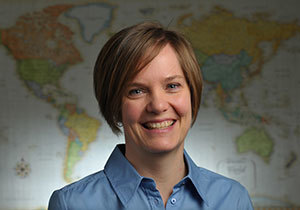 Larissa Fast
Larissa Fast
Larissa Fast, assistant professor of conflict resolution at the University of Notre Dame’s Kroc Institute for International Peace Studies, has co-authored three new research reports documenting and analyzing the dangers facing humanitarian aid staff working in conflict zones around the world. The reports, recently published in Insecurity Insight, have already been downloaded more than 2,000 times.
In recent years, the number of aid workers killed and injured by firearms, explosive weapons, bombs and other forms of severe violence has risen to unprecedented levels, said Fast.
“Aid workers are first and foremost civilians," said Fast, whose forthcoming book, “Aid in Danger,” also addresses this issue. “Protecting them is a critical part of the overall effort to protect civilians in armed conflict.”
Fast coauthored the reports with Christina Wille, director of Insecurity Insight, a Swiss organization that generates data on the impact of insecurity on people’s lives and helps organizations set up data-gathering systems on related topics.
The three new reports are:
- “Operating in Insecurity. Shifting patterns of violence against humanitarian aid providers and their staff (1996-2010).” (download)
- “Humanitarian staff security in armed conflict: Policy implications resulting from changes in the operating environment for humanitarian agencies.” (download)
- “Security Facts for Humanitarian Agencies. Shifting patterns in security incidents affecting humanitarian aid workers and agencies: An analysis of fifteen years of data (1996-2010).” (download)
This research was funded by the Swiss Agency for Development and Cooperation of the Federal Department of Foreign Affairs of Switzerland. The Kroc Institute and the Institute for Scholarship in the Liberal Arts, both at the University of Notre Dame, provided additional support for data entry in the Security in Numbers database used for the analysis.
Contact: Larissa Fast, 574-631-7096, lfast@nd.edu